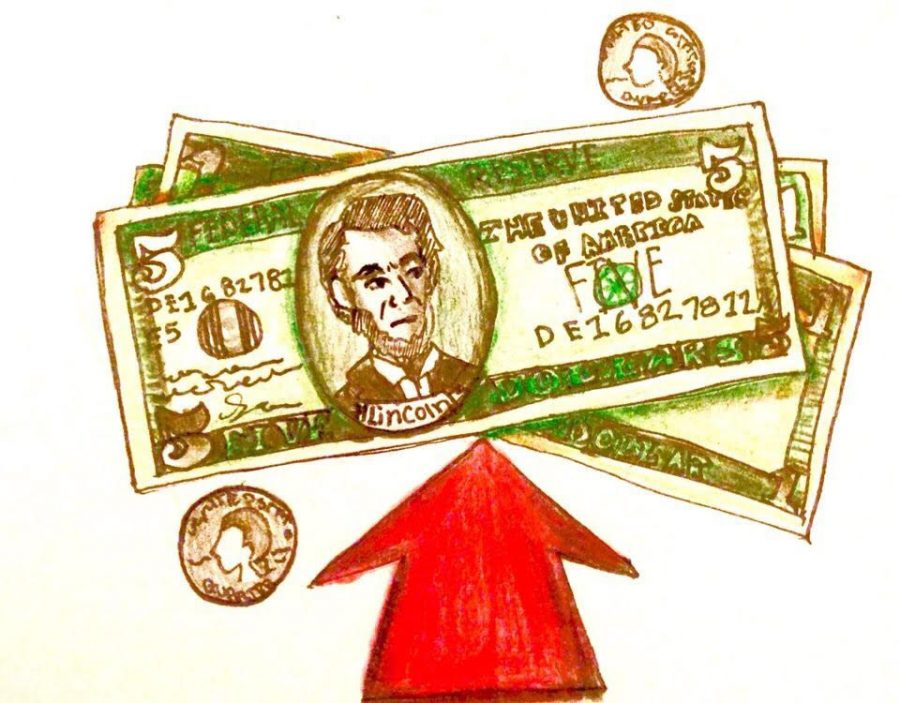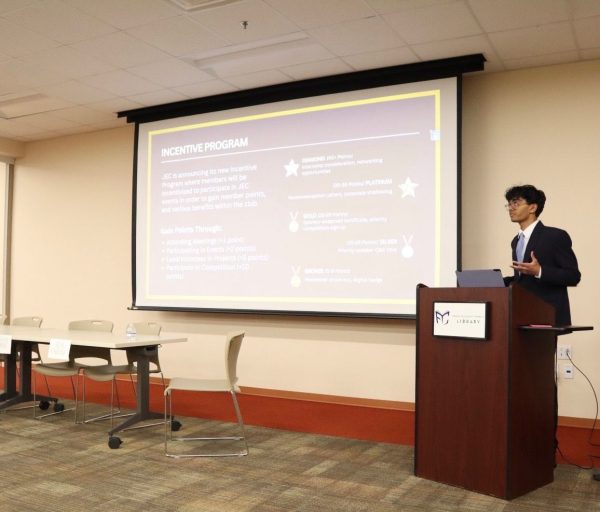Why increasing minimum wage is the best thing for American families
Increasing the minimum wage to $10.10 an hour will give millions of Americans the opportunity to rise out of poverty and into financial security.
The federal minimum wage is defined as the lowest amount of compensation that an employer can legally provide to their workers. In terms of the amount of low skilled workers around the country, the amount that these workers typically earn to sustain a family is just not enough. At the moment, the U.S minimum wage is at $7.25 per hour- which after taxes is $6.26. There are however various minimum wages throughout 45 states in the U.S: as of 2015, $9.05 per hour in Washington, DC, to $5.15 an hour in Georgia and Wyoming. What is so terrifying to imagine is the amount of families being supported by minimum wage. As someone who is privileged enough to live in one of the richest counties in Georgia, it is difficult to imagine what it is like to live off of paycheck to paycheck. Nonetheless, I will remain empathetic to those who struggle daily and vouch to raise the minimum wage to $10.10 an hour.
Like many controversial topics present in the modern political climate, there is a strong sense of sensationalism that root from both sides of the debate. For example, the majority of Republicans support keeping the minimum wage at $7.25; raising the minimum wage, however, has been supported by most Democrats. The fine line dividing the two political parties and political ideologies is a result of the effects of minimum wage. Since being introduced in the early 40’s, the minimum wage has increased a total of twenty two times: starting at $0.40 in 1945 to $7.25 in 2009. With this in mind, it is important to consider why it has fluctuated so eagerly. It is simply a result of the two sides that define the debate.
I strongly support for increasing the minimum wage. The 44th president of the United States, Barack Obama, led an effort during his presidency and strived to increase minimum wage to $10.10 an hour in his 2014 state of the Union address. Obama relied on the fact that by increasing minimum wage struggling Americans would be given a financial boost to “make ends meet”. Given that a hourly wages are based on $7.25, successfully supporting a family is simply inconceivable and frankly unfair as this puts families at significant financial disadvantage.
As aforementioned, increasing the minimum wage would do a great deal for society as the middle class grows and the lower class disappears. And considering that the middle class is the largest portion of our consumer economy, it makes sense to increase the minimum wage. This not only justifies how it would help households that earn less than $35,000, but it would also benefit “millions” of middle class families. Research given to the Obama White House archives details that by expanding the amount of money earned by lower-skilled workers there would boost employee’s morale, thus “improving productivity”.
I think it is fair to say that an increase in the minimum wage can be linked to a chain reaction of benefits for workers all over America: the middle class will receive more income and therefore spend more money, low-income families will have a chance to get out of poverty, and overall, there will be more money circulating throughout the economy.
However, some view that raising the federal minimum wage will pose a considerable risk to our economy; potentially, the biggest threat to the structure of our capitalist market would be the amount of jobs that would be lost in the effort to raise the minimum wage. There is evidence that even raising it to $9.50 would result in a loss of 1.3 million jobs. And unfortunately, America’s own history details that in 1938, when the nation-wide wage was increased by 25 cents, there was still significant job loss. The backbone of this bold claim assumes that although there might be low-skilled workers still employed, it also insinuates that other low-skilled workers will lose their jobs or have their hours significantly cut as businesses struggle to pay their employees. This is however contradicted in the sense that additional research also displays how employees would face a lower amount of turnovers through an increased productivity level; minimum wage workers would only put in one to two percent fewer hours over the course of a year while still earning eight through nine percent more in their paychecks if the wage was ever increased about ten percent.
Given strong support and reasons on both sides, I still believe that this is a situation that comes down to basic morality. Yes, there is evidence that supports that increasing the minimum wage will pull workers into poverty, but nonetheless I am still a strong advocate for increasing the federal minimum wage as it will not only benefit the employers but it would help the employees and any low-skilled worker have a better chance at obtaining a more comfortable life.
Your donation will help support The Lambert Post, Lambert High Schools student-run newspaper! Your contribution will allow us to purchase equipment and cover website hosting costs.












